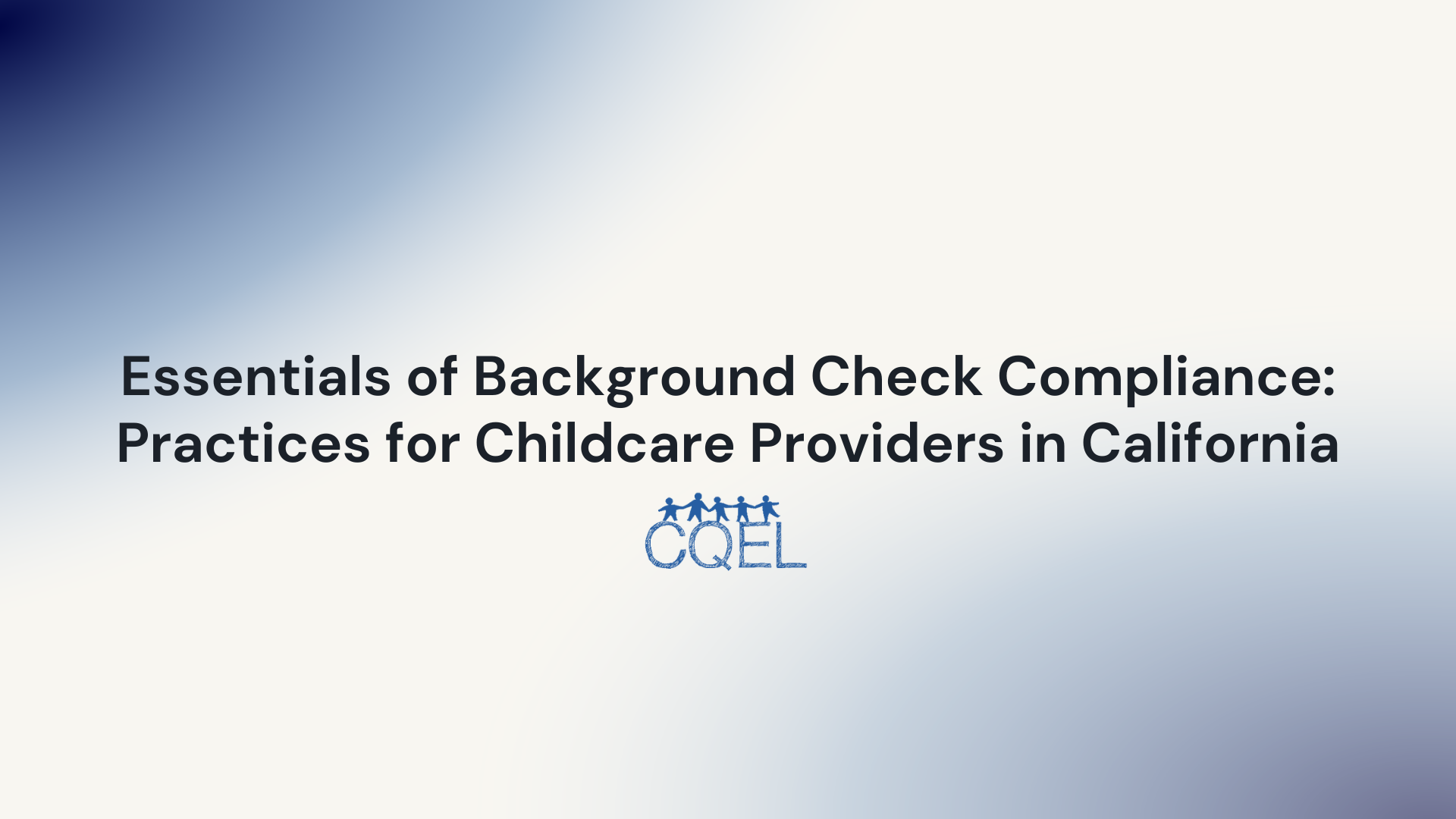Essentials of Background Check Compliance: Practices for Childcare Providers in California
In California, as is the case nationwide, background checks are a vital part of the hiring process, especially for childcare providers. Ensuring the safety of children entrusted to their care requires meticulous diligence.

In California, as is the case nationwide, background checks are a vital part of the hiring process, especially for childcare providers. Ensuring the safety of children entrusted to their care requires meticulous diligence. Background checks help determine if a potential hire has a history that might disqualify them from working with children. However, navigating the regulations surrounding background checks can be daunting. This blog post aims to highlight five best practices for conducting background checks in compliance with California's stringent laws.
Understanding the Legal Landscape
Before you begin conducting background checks, it's important to familiarize yourself with the legal landscape. Both federal laws like the Fair Credit Reporting Act (FCRA) and California-specific regulations such as the Investigative Consumer Reporting Agencies Act (ICRAA) govern the process. For childcare providers, understanding these laws and their implications is critical in maintaining compliance and avoiding potential legal pitfalls. For an overview of the FCRA, visit the Federal Trade Commission's website. For a detailed review of ICRAA, the State of California's Department of Justice's website provides excellent guidance.
Securing Consent and Disclosure
Compliance starts with securing the applicant's written consent before conducting a background check. In addition to consent, disclosure is crucial. Inform the applicant about the process and how the information obtained may affect their employment prospects. This step should be done in a "stand-alone" document, separate from the job application, ensuring the disclosure is clear and conspicuous. An example of a model disclosure form can be found on the Consumer Financial Protection Bureau's website.
Adopting an Individualized Assessment Approach
While certain criminal convictions might be pertinent to the position, it's important to avoid blanket policies that exclude applicants based on any criminal record. Instead, adopt an individualized assessment approach. This means taking into account the nature of the conviction, its relevance to the job's responsibilities, and the time elapsed since the offense. The Equal Employment Opportunity Commission provides excellent guidance on how to undertake this individualized assessment.
Handling Negative Information Correctly
Should a background check return potentially disqualifying information, it's important to follow a process known as pre-adverse action. This involves notifying the applicant about the negative information, providing them with a copy of the report, and giving them an opportunity to dispute the information. If you then decide not to hire the applicant based on the report, you must provide them with an adverse action notice. The Federal Trade Commission offers a useful guide on handling this process correctly.
Maintaining Records Responsibly
The last key practice pertains to how you handle the reports after you've completed the background check. Both federal and state laws stipulate how long you should retain these records and when and how to dispose of them securely. Following these guidelines is critical to maintaining privacy and avoiding penalties. More on this can be found in the Federal Trade Commission's guide on disposing of consumer report information.
Safeguarding Your Center and the Children
Conducting background checks is an integral part of safeguarding both your childcare center and the children under your care. However, they must be performed responsibly, in compliance with all legal obligations. By adhering to the five practices outlined here - understanding the laws, securing consent and disclosure, adopting an individualized assessment approach, handling negative information correctly, and maintaining records responsibly - you can ensure your center is a safe and secure environment for all.
